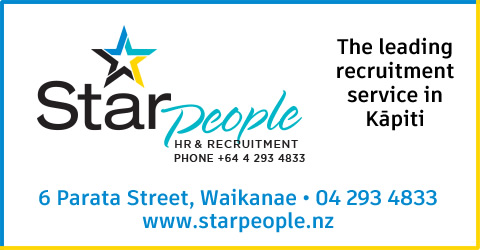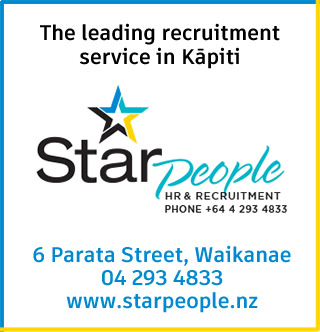A New Breed of Entrepreneurs Make way for the Senior Entrepreneur
Thursday 5 October, 10.30am to 12pm
Light refreshments on arrival
Venue: Coastlands Kāpiti Sports Turf & Pavilion, Paraparaumu
Cost: All welcome, free
The Kāpiti Chamber of Commerce, in association with Kāpiti Coast District Council is delighted to be hosting an experienced manager, facilitator and consultant recognised for his strategic and future thinking skills in the field of age and work, Geoff Pearman of Partners in Change.
Members of the public community, senior entrepreneurs, business owners, business advisors, consultants & coaches and mentors are invited to this seminar.
Forget the myth that it’s the young and tech savvy leading the way in creating new businesses. Globally Senior Entrepreneurs are a fast-growing segment.
The ageing of the population means that starting a business is an option an increasing number of people over 50 years will be taking up, often for the first time. Seniors often have the skills, networks, financial resources and time available to contribute to this form of economic activity.
Topics to be presented:
Longevity produces new opportunities
Why become a senior entrepreneur push and pull factors
Challenges and opportunities
Getting started
About the Presenter – Geoff Pearman – Consultant, Speaker, Trainer, Author and Managing Director Partners in Change.
Geoff is an experienced manager, facilitator and consultant recognised for his strategic and future thinking skills. He initiate’s and implements complex organisational change and develops innovative approaches to programme and service delivery.
Working full time in his consultancy since June 2013 Geoff has now established a successful Trans-Tasman business in the field of age and work. Partners in Change has clients in sectors as diverse as health, financial services, education, utilities, transport, tourism, manufacturing, construction, social services and central and local government. They have assisted over 90 employers of all sizes to develop mature aged workforce action plans.
Geoff’s skills have been developed through leadership roles in the university, government and human services sectors. His career has seen him working in both New Zealand and Australia. He has tertiary education qualifications in sociology, social work, adult education and training and development. Geoff published his book DOING IT DIFFERENTLY Life and Work After 50 last year. Now based in Dunedin, Geoff works with associates and colleagues in Brisbane, Tasmania, Auckland and Hawke’s Bay.
Background to Age & Work in Kāpiti
In 2016 there were 5,262 self-employed people in Kāpiti, which amounted to nearly a third (31.2%) of total employment. The national self-employment rate is 18% and the regional rate is 15.9%.
Infometrics has identified that the self-employed in Kāpiti tend to be of an older age and do a diverse range of things. The median age for self-employment in 2016 was 52.1 years, with males somewhat older (53.2) than females (50.6).
The highest group of self-employed is in construction and in manufacturing. We tend to think we have a lot of professional service experts like accountants, lawyers and tech experts here we do, but not as many as construction and manufacturing workers. Self-employed males are the predominant group probably reflecting the high number of construction workers which includes ‘tradies’.
The numbers of self-employed in Kāpiti are increasing year on year, suggesting that Kāpiti is the place where entrepreneurs want to live. The work-life balance and multiple, easy transport options on offer here are second to none.
Interestingly, women who are self-employed tend to be aged 40-54 (men 50-64) which suggests women tend to work from home while their children are young. Once the children are semi-independent they are more likely to go back to employed work, whereas men wait until the children leave home before they work for themselves.
All of this is reflective of our demographic profile. In 2013 the dominant age structure in Kāpiti was 50-54 year olds. Population growth from 2013-2028 is forecasted to be in the age group 75-79, with the largest age group in 2028 being 65 to 69.
Today people are living on average of 20 years longer than 50 years ago. This is causing a rethink to the traditional 20-40-10 paradigm of life; that is, around 20 years of education and training, 40 years of work, family, getting ahead and the 10 years of the so called ‘golden dream’ the reward for the hard years of work ‘retirement’.
Increased longevity means it is no longer 10 years of the ‘golden years’ as we are doing this stage of our lives differently. In New Zealand 45% of people aged 65-69 are still working, and this will only increase with people staying on at work through choice and from financial necessity.
This event is delivered by Kāpiti Chamber of Commerce in Association with Kāpiti Coast District Council.








































